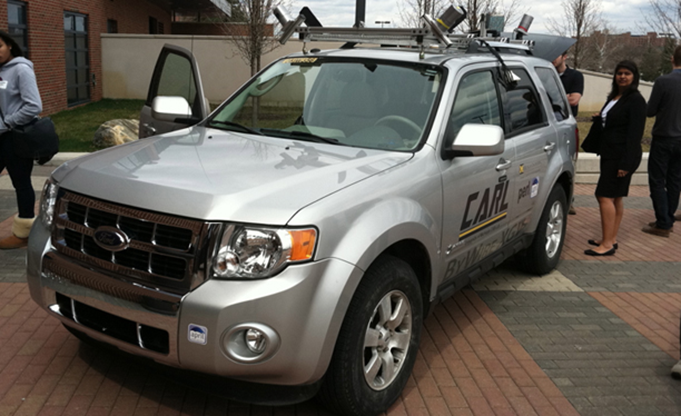Silicon Valley sits at the epicenter of the nation’s software industry. Detroit sits at the epicenter of the nation’s auto industry.
As the two industries merge, there’s a rivalry brewing.
As automakers like Ford and internet giants like Google all push for technology advances that power the driverless car, the economy of each region could hinge upon their comparative success.
“Everyone has a little piece of the puzzle right now,” said Ryan Eustice, a professor at the University of Michigan’s College of Engineering. “Google and others are on the West Coast trying to pull it there, but Michigan also has a good chance at being the center of gravity.”
Michigan is trying to take steps toward that goal – or at least staying on par with its California competition. State lawmakers have introduced a bill that would set the stage for more autonomous vehicle testing on Michigan roads.
The bill, Senate Bill 126, would widen the scope of Michigan’s laws to allow the operation of an automated vehicle for testing and research. It would also allow “upfitters,” such as Google, to test on public roads. Should the bill pass, Michigan would be the fourth state to pass legislation that governs the nascent autonomous-car industry, behind Nevada, California and Florida.
Already, a good deal of autonomous testing already takes place in the state. Toyota has centered its North American efforts in Ann Arbor, and the University of Michigan recently began testing 2,850 connected cars as part of a $14.9 million pilot program developed by the U.S. Department of Transportation.
Michgian Gov. Rick Snyder touted the legislation Monday during a short speech as part of Michigan Robotics Day, a forum sponsored by the National Center For Manufacturing Sciences and University of Michigan.
“This is critically important,” Snyder said. “The role of government is to support these projects. I’ve called for autonomous vehicle legislation. Hopefully, it will get done soon.”
New degree programs
The Republican governor also sketched a broad outline for getting the state’s universities and community colleges to collaborate more on research, student apprenticeships and degree programs. He wants them to offer degrees in mechatronics, a multidisciplinary engineering degree that combines industrial, mechanical and computer applications. The University of Michigan is also launching a PhD program in robotics.
Autonomous cars have driven hundreds of thousands of test miles already. A researcher from the University of Parma in Italy has logged more than 400,000 of flawless miles, many coming on a drive from Parma to Shanghai. Likewise, Google says its driverless cars have logged more than 300,000 accident-free miles.
Whlle the idea of autonomous driving may conjure images of driver-free vehicles – indeed, that’s what Google’s car precisely does – there will likely be intermediate technologies before true driverless cars reach the mass market. Some will reach consumers in as little as two years.
“We’ll start off on the lower level, where the driver can seize control when they want, and not the other way around,” said John Maddox, director of collaborative program strategies at the University of Michigan’s Transportation Research Institute.
In some cases, those technologies are already here. Adaptive cruise control, lane-keeping systems and active park assist are all early forms of autonomous cars. It’s a short leap, one researcher said, before active park assist will soon allow drivers to exit at their destination, and then the cars will drive a few blocks to park themselves.
One area where automakers hold an early advantage over software counterparts is they have some experience in dealing with false positives, said Jim McBride, a Ford researcher who concentrates on autonomous technologies.
“If a refrigerator falls off the back of a truck in front of you, you want your car to stop,” he said. “If it’s leaves blowing off the back of that truck, you don’t want to. These are problems that you have to deal with.”
He thinks it’s premature to evaluate the impact of Michigan’s pending legislation, but sees benefits beyond automotive in making Michigan a robotics-friendly corridor.
Eustice, on the other hand, sees the bill as a significant step that helps Michigan solidify its footing in the competitive landscape, along with its proximity to an extensive manufacturing base and a high-tech talent pool.
“This is on the radar of every single OEM,” he said. “There is a lot of momentum here.”



